The coronavirus pandemic, the global spread of monkeypox or the current Ebola outbreak in Uganda - zoonoses are and remain an important health issue. Against this background, the symposium of the German Research Platform for Zoonoses took place in Berlin from 05 to 07 October 2022. With 350 participants from 12 nations, the event was again able to bring together numerous zoonoses researchers on its return to Berlin after two Corona-related online editions. During the 3-day event, the latest results from zoonosis research were presented in lectures and poster contributions. The young scientists convinced with creative contributions in the poster slam. The five top-class, international keynote lectures were all under the guiding theme of "One Health" in 2022. An approach that was reflected in many of the research papers presented, underlining the interdisciplinary and forward-looking nature of zoonoses research.
The German Research Platform for Zoonoses organizes an annual symposium for professional exchange between zoonoses researchers. This has been held in Berlin since 2009 (only in 2020 and 2021 SARS-CoV-2 made an exception necessary). In the welcoming speech of the Federal Ministries at the opening of "Zoonoses 2022", which was held by Oberarzt Professor Dr. Roman Wölfel on behalf of BMBF, BMEL, BMVg and BMG, important topics were the management of the current pandemic as well as the prevention of new health risks caused by zoonotic pathogens. With regard to "One Health challenges," Prof. Wölfl emphasized the importance of existing collaborations and networks in research, such as those created by the Zoonoses Platform.
Wide range of topics
The venue for the symposium this year was the MOA Berlin for the first time. Irritation about the new venue disappeared at the latest during the first coffee break in the light-flooded atrium, which provided a worthy stage for the more than 100 poster contributions. In addition to the poster contributions, new results from zoonoses research were also presented in short lectures in 11 different thematic sessions. The topics ranged from molecular pathogen-cell interactions to public health intervention approaches.
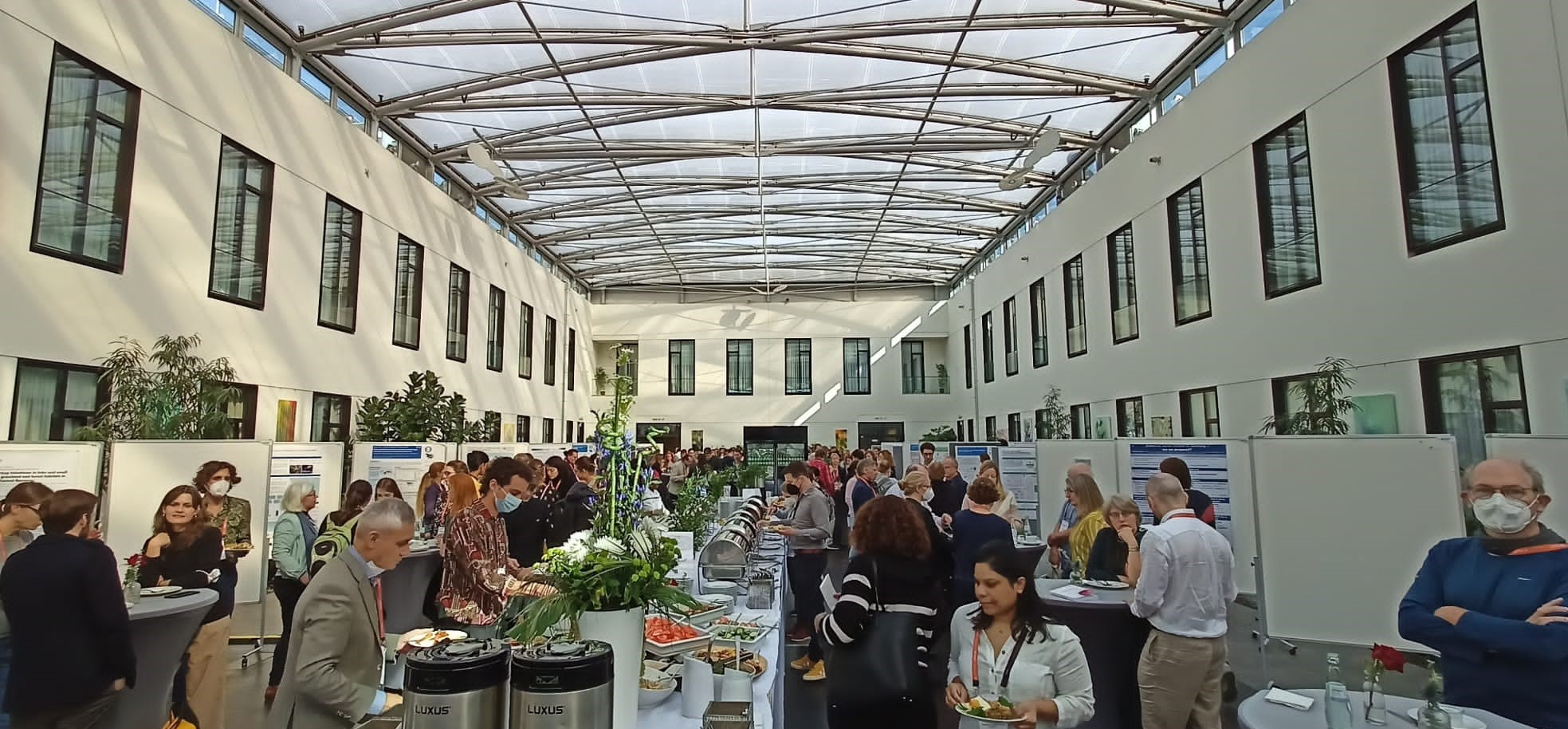 Fig. 1: The atrium, site of the poster exhibition and buffet, provided the ideal space for professional exchange and networking.
Fig. 1: The atrium, site of the poster exhibition and buffet, provided the ideal space for professional exchange and networking.
Creativity and entertainment at the Poster Slam
A highlight was once again the Poster Slam, in which young scientists presented their work in a one-minute video. In the poster award, the best three contributions were honoured. Mareike Heinig from the University of Veterinary Medicine (TiHo) Hannover won with her contribution on the investigation of different transmission routes of the Culex Y virus in Culex pipiens mosquitoes (interview with the winner). Second place went to Jesica Kohs (Friedrich-Loffler-Institute), third place to Anna-Delia Herbstmann (Federal Institute for Risk Assessment) (to the 2022 Poster Prize). The awarding of the prizes turned out to be a small challenge: Since Ms. Heinig had to catch her train back to Hanover, she was unfortunately no longer present for the awarding ceremony. Fortunately, a trustworthy messenger was found among the remaining participants who could safely hand over the poster prize to the winner in Hannover.
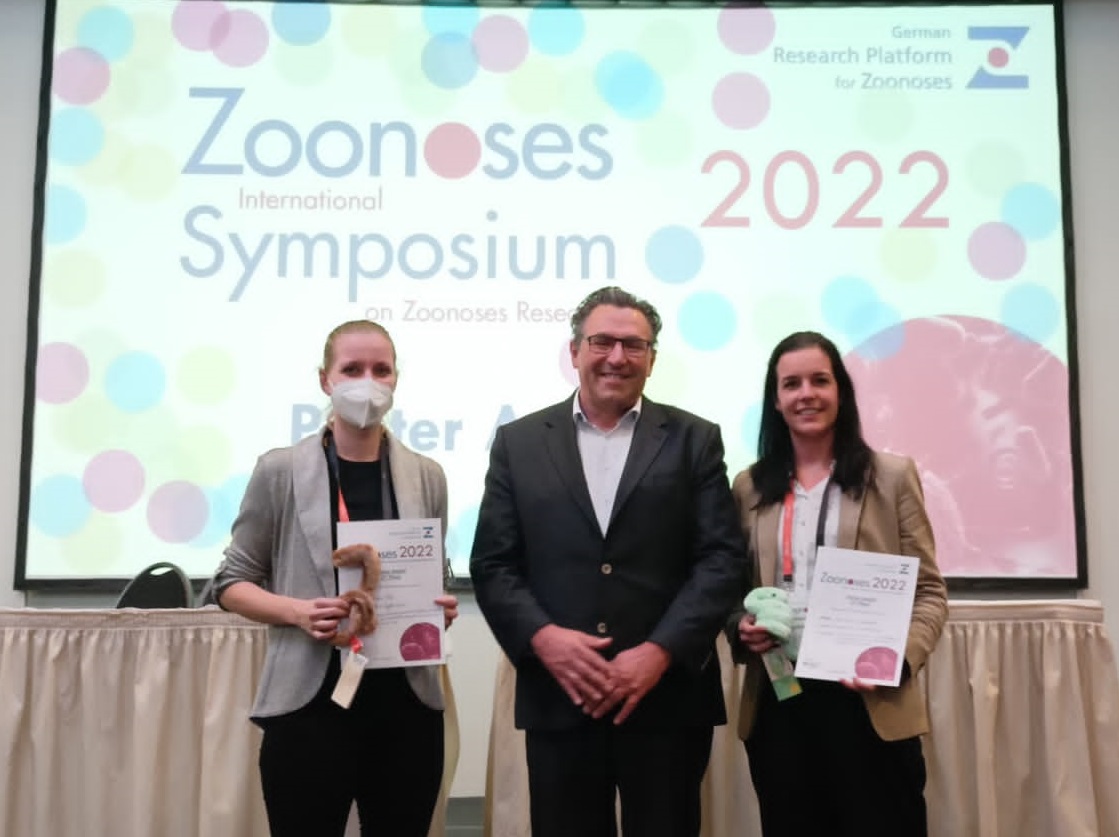
Fig. 2: Award ceremony part 1 - second and third place could be handed over on site by Prof. Dr. Stephan Ludwig (center) to Jessica Kohs (left) and Anna-Delia Herbstmann (right).
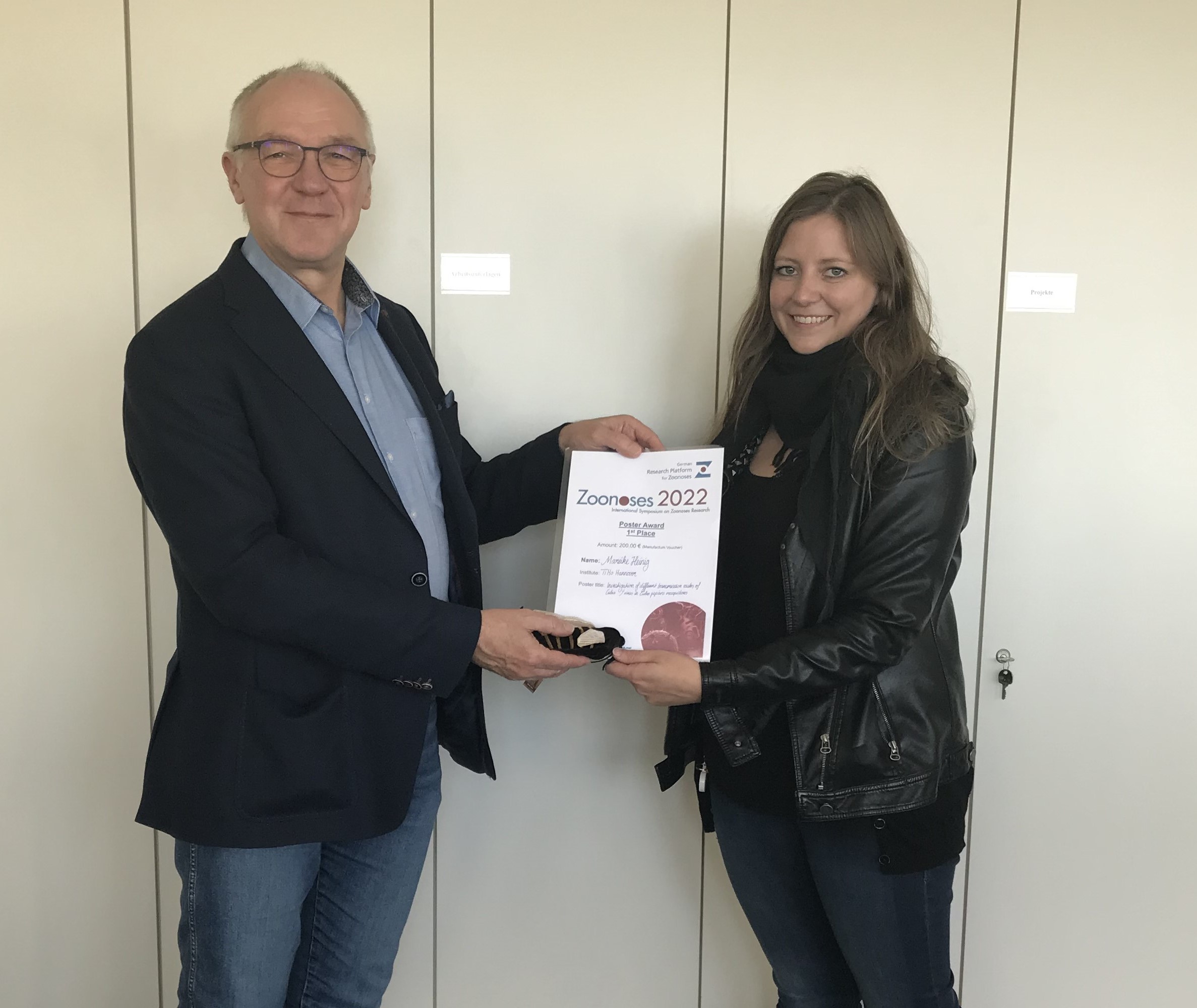
Fig. 3: Award ceremony part 2 - Prof. Dr. Lothar Kreienbrock (left) handed over the 1st place of the Poster Award 2022 to the winner Mareike Heinig (right) in Hannover, because the winner had to leave the symposium in Berlin already before the poster award ceremony.
Fig. 4: Good setting for a relaxed exchange - the Young Scientist Breakfast offered the opportunity for an exchange of experiences across career levels.
Exchanging experiences in a relaxed atmosphere
Young scientists were also the focus of the Young Scientist Breakfast. The format enabled young scientists to ask established zoonoses researchers questions about their careers and research over breakfast. In 2022, Prof. Dr. Elke Hertig (University of Augsburg), Prof. Dr. André Karch (University of Münster), Prof. Dr. Fabian Leendertz (Helmholtz Institute for One Health) and Prof. Dr. Katharina Schaufler answered questions. With such concentrated expertise, at most only eating came up short, as the generous buffet offerings were often neglected in favour of the exciting discussions.
A plea for One Health
The keynote lectures were all under the guiding theme of One Health in 2022. The first was given by Thomas Gillespie (EMORY University), who spoke about the links between biodiversity and health and addressed the ecology of infections at anthropogenic interfaces. He pointed out that the destruction of ecosystems has an effect on the occurrence of pathogens and that the risk from emerging pathogens is high if we do not stop global changes in land use. The close interconnectedness of individual systems should not be neglected, he said, and synergistic solutions to achieve the Sustainable Development Goals (SDGs) should be pursued in the long term.
With this plea for One Health, he was in line with Osman A. Dar (UK Health Security Agency & Royal Institute of International Affairs), who as a member of the One Health High Level Expert Panel (OHHLEP) of WHO, FAO, WAOH and UNEP, was involved in the development of a comprehensive definition of One Health. This was an important step because, as Mr. Dar made clear in his presentation, a common language is the key to successful cooperation. He also appealed for equity and parity to be promoted so that it is not only rich countries that make the decisions.
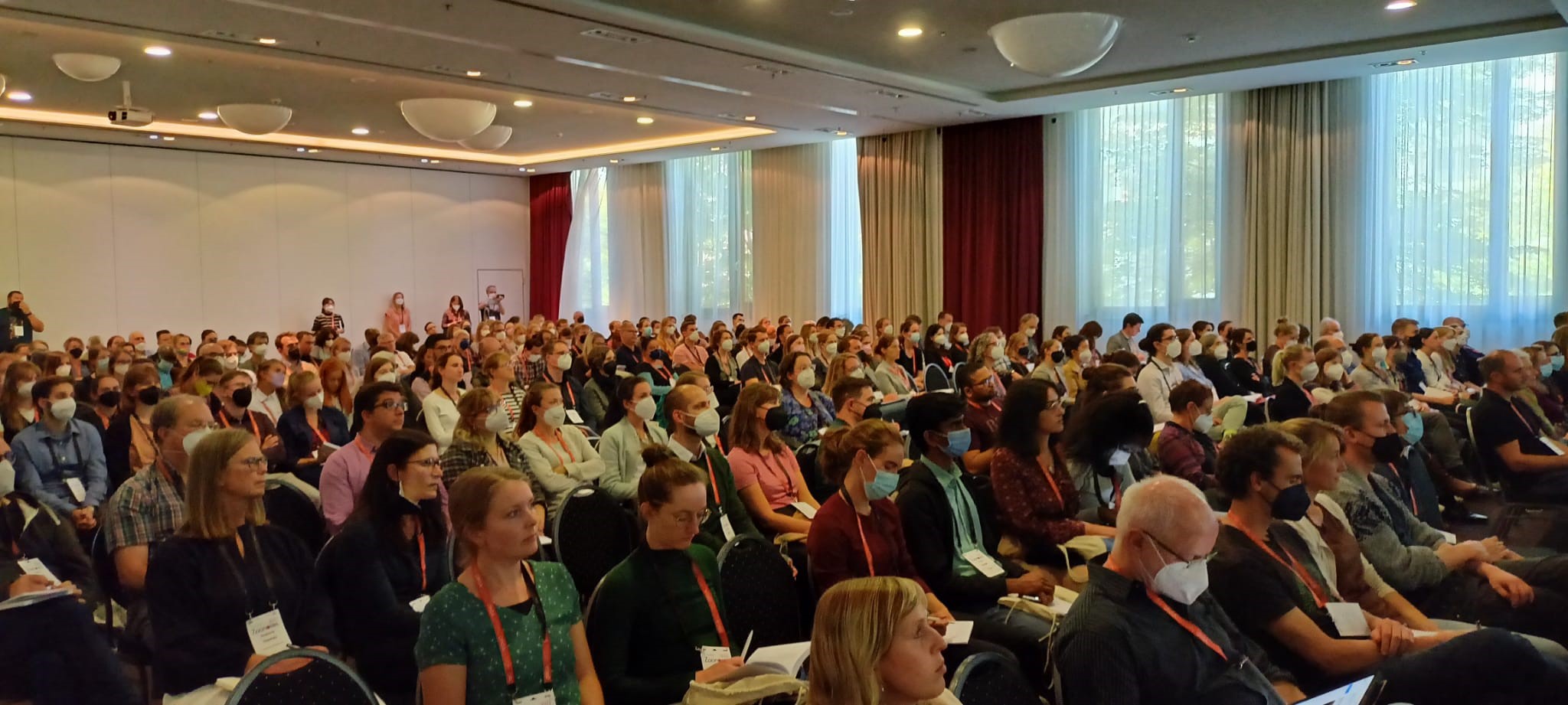
Fig. 5: The more than 350 participants of Zoonoses 2022 followed the keynote lectures with great interest.
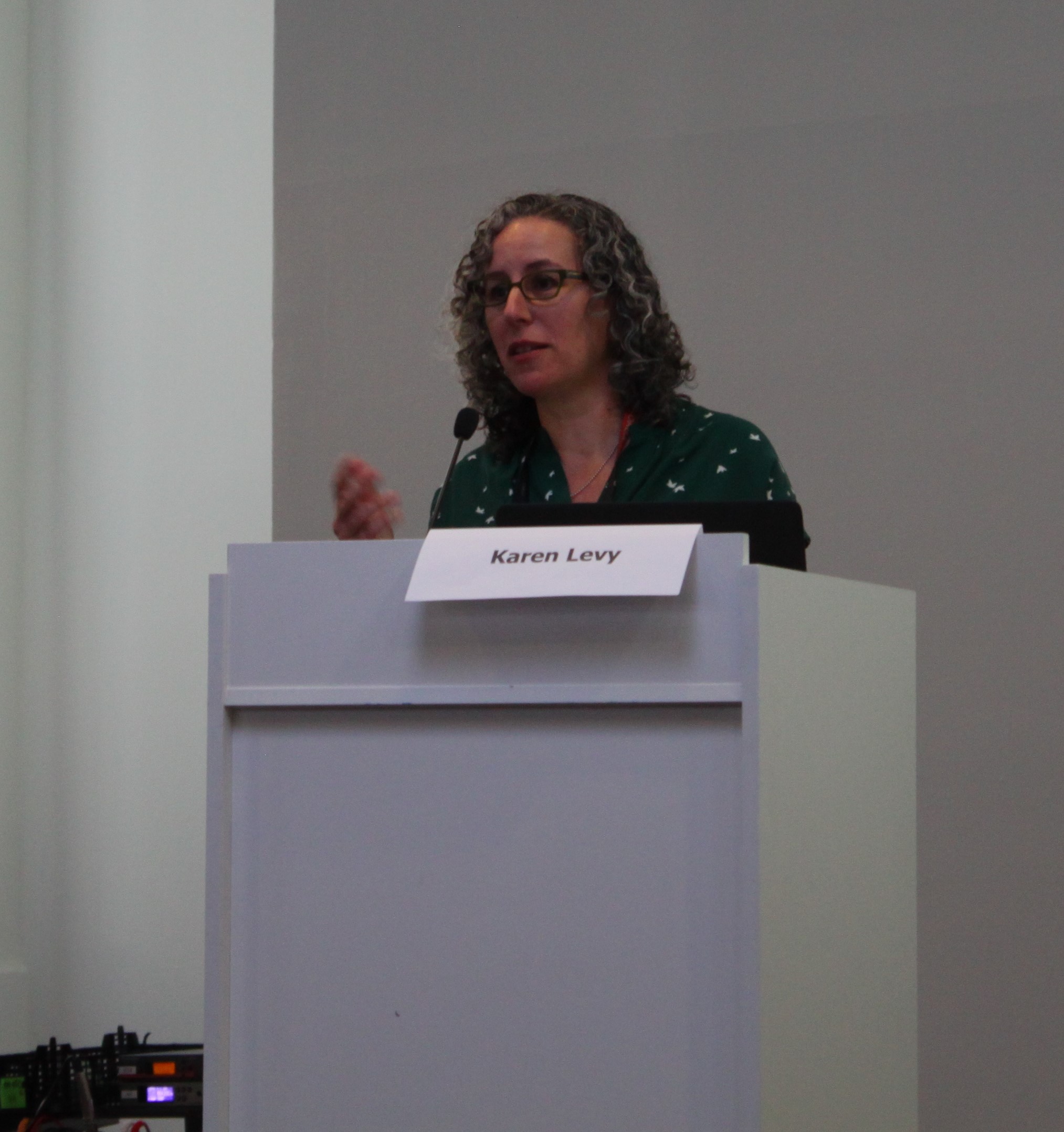
Fig. 6: Karen Levy managed to excite the audience with her presentation at Zoonoses 2022, even if her topic "diarrheal diseases" was not quite so sexy.
The added value of One Health in zoonoses research
While these two keynote presentations set a general framework for One Health approaches and processes, the other keynote speakers addressed specific issues where One Health approaches can be useful. Marc Holmes (University of Cambridge) presented exciting research on a zoonotic methicillin-resistant Staphylococcus aureus (MRSA) strain that encodes a divergent mecA gene. André Karch (University of Münster) discussed how modelling of infectious diseases can be helpful and reported on initial approaches incorporating environmental and veterinary data into human medical models. A very different aspect of zoonotic disease research was discussed by Karen Levy (University of Washington), who reported on the importance of holistic approaches in the control of (zoonotic) diarrheal diseases. She said that the WASH (Water, Sanitation & Hygiene) sector will need to collaborate with agriculture, veterinary medicine, as well as the food sector in the development of intervention strategies in the future. Zoonotic transmission routes should not be ignored in the intervention methods.
Good prospects for networked zoonoses research
In addition to the professional exchange, zoonoses research was also able to benefit from structural course-setting during the symposium. On the second day of the event, the joint research agreement of six ministries (BMBF, BMEL, BMG, BMVg, BMUV, BMZ) was announced to strengthen the One Health approach in health research. In the course of this, "the successful German Research Platform for Zoonoses is to be further developed into a research platform for One Health". This further development will also actively involve the new Internal Advisory Board of the Zoonoses Platform, which was elected at the General Meeting for the next term of office (see Internal Advisory Board).
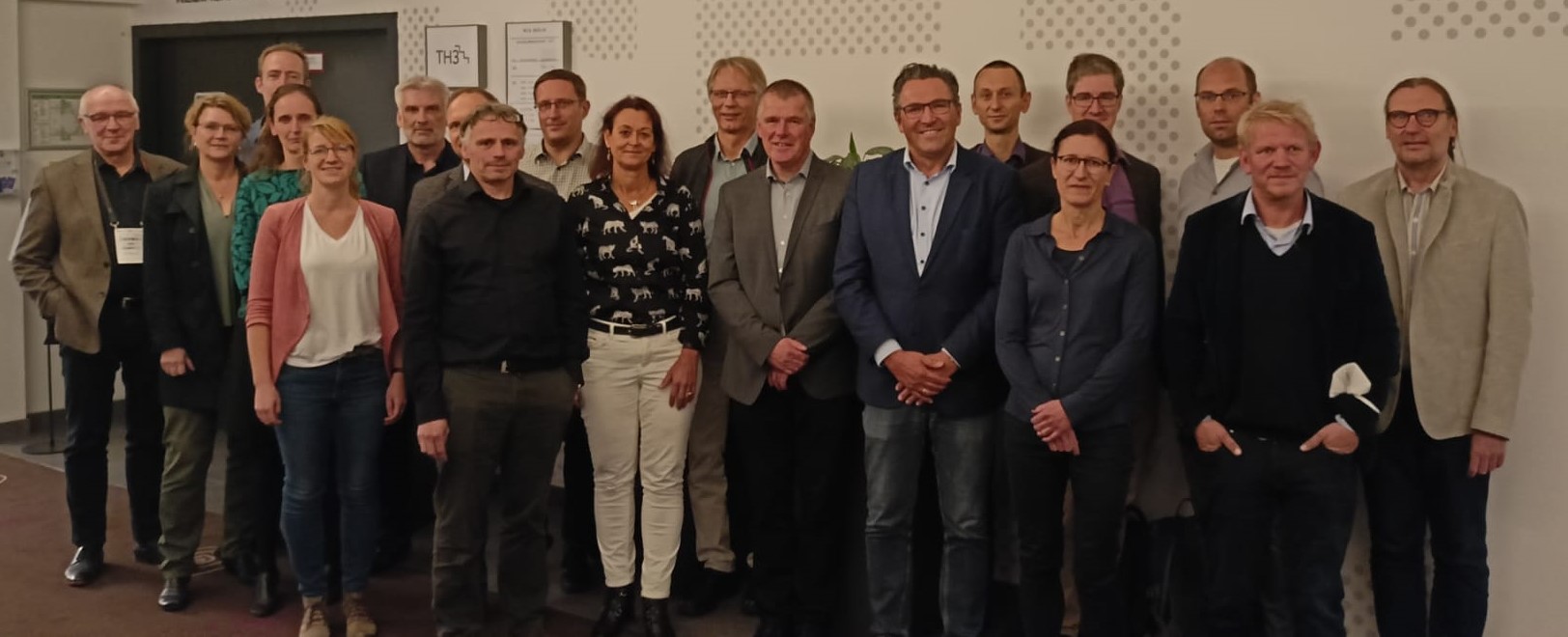
Fig. 7: Members of the newly elected Internal Advisory Board of the German Research Platform for Zoonoses at the Symposium 2022.
Zoonoses 2022 was an intensive exchange of the interdisciplinary zoonoses research community. The research results presented showed that the thematic spectrum has already evolved and that environmental topics are also receiving increasing attention in zoonoses research. With the backing of the new research agreement on One Health by six federal ministries, zoonoses research can be further developed and promoted in the long term. These are good prerequisites for sustainably addressing the challenges posed by zoonotic diseases.
Text: Dr. Dana A. Thal, German research Platform for Zoonoses



